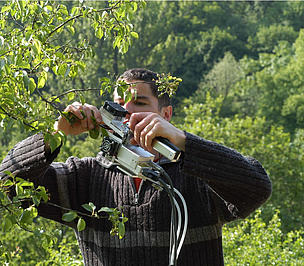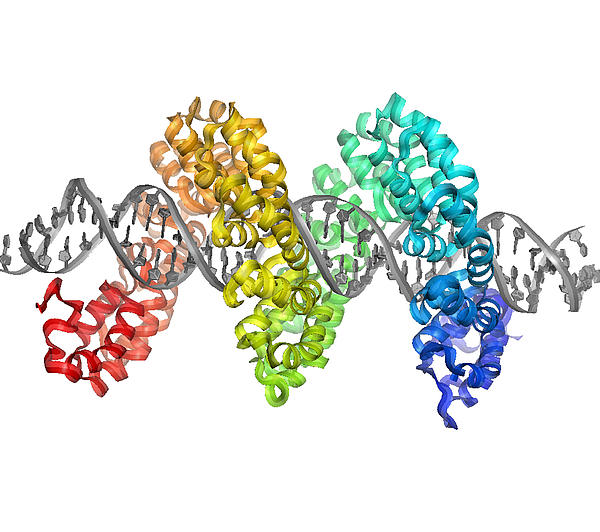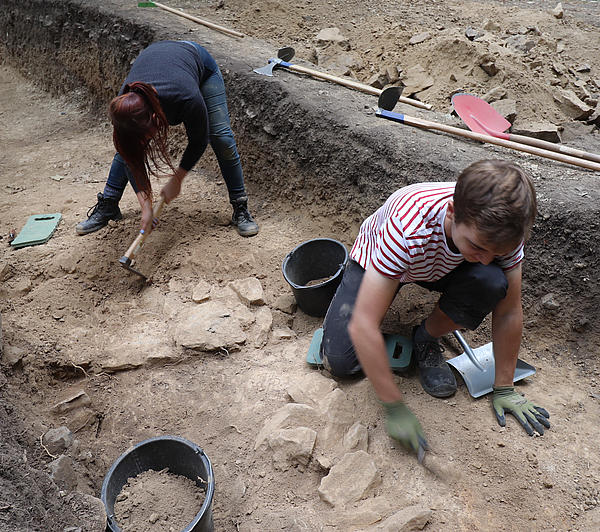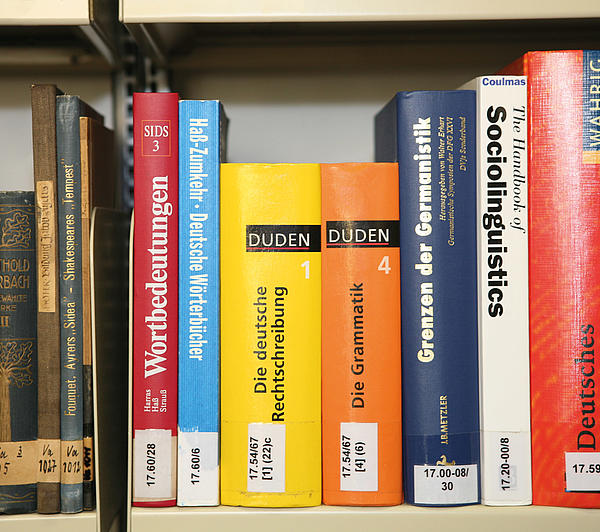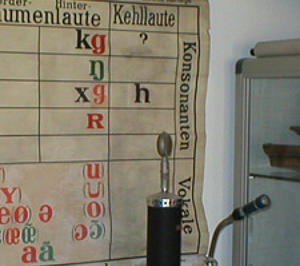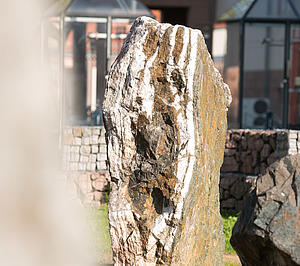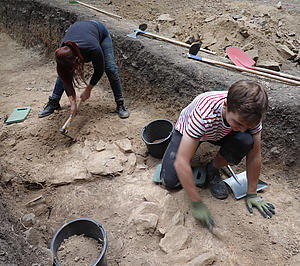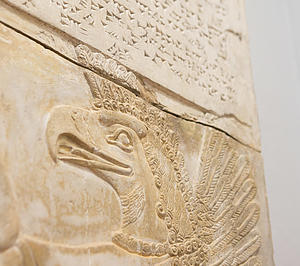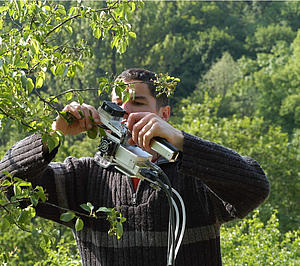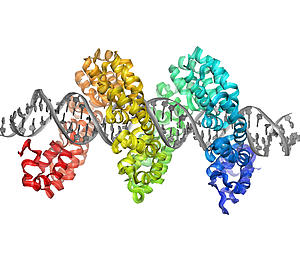Biodiversity Sciences
Komplett und maßgeschneidert
Von A wie Agrarwissenschaften bis Z wie Zahnmedizin - das Studienangebot an der Uni Halle ist riesig. Mehr als 240 Studienangebote gibt es insgesamt und mehr als die Hälfte davon haben keinen NC, stehen also zur freien Einschreibung zur Verfügung!
Aber das ist längst nicht alles! Sehr viele der angebotenen Studienfächer lassen sich miteinander kombinieren. So kannst du genau das studieren, was dich interessiert – und dir dein Studium „auf den Leib schneidern“.
Unsere Angebote für diese Studienrichtung:
Biodiversity SciencesMaster-Studiengang
Allgemeine Informationen
| Studienabschluss | Master of Science (M.Sc.) |
|---|---|
| Umfang | 120 LP |
| Regelstudienzeit | 4 Semester |
| Studienbeginn | nur Wintersemester |
| Studienform | Direktstudium, Vollzeitstudium, Internationaler Studiengang |
| Hauptunterrichtssprache | English |
| Zulassungsbeschränkung | zulassungsbeschränkt (Uni-NC) |
| Fachspezifische Zulassungsvoraussetzungen | ja (Details) |
| Fakultät | Naturwissenschaftliche Fakultät I - Biowissenschaften |
| Institut | Institut für Biologie |
| Akkreditierung | akkreditiert |
Charakteristik und Ziele
The international master's programme MSc Biodiversity Sciences aims to scientifically convey how the state and changes of biodiversity can be quantified across space and time, what evolutionary and ecological processes underlie them and what consequences arise from biodiversity changes for humans. Biodiversity forms the foundation for all ecosystem functions and human well-being on Earth. While the study programme is based on the fundamentals of the natural sciences, it has a strong interdisciplinary component. In the last decades, we have encountered a dramatic loss in and restructuring of biodiversity. As biodiversity and its change are strongly linked to society, the programme has a strong interdisciplinary component, addressing the options of how biodiversity can be maintained and integrated into the management of our planet’s resources. To achieve these goals, various disciplines are engaged in the master's programme, from organismic to molecular biology, biogeochemistry, landscape ecology, natural resource management and bioinformatics to interfaces with socio-ecological sciences.
Students acquire the skills to collect, statistically analyze and visualize biodiversity data themselves. They will gain an understanding of the different levels of biodiversity, which includes genetic diversity as well as the diversity of species, habitats and functions. This is achieved, on the one hand, by teaching theories and data analysis, and, on the other hand, through laboratory practicals, field studies and excursions. The expertise acquired includes a profound knowledge of species, which also enables in-depth specialization in certain species groups, and, in addition, the ability not only to present the research results of biodiversity research scientifically, but also to communicate them to political decision-makers, interest groups and the public and to implement them in practice.
The consecutive study programme has a strong research orientation enabling students to work systematically and scientifically and to conduct independent scientific research. Other important study goals are interdisciplinary knowledge as well as communication and teamwork skills. The international character of scientific research is taken into account by conducting the study programme, i.e. the lectures and examinations, entirely in English.
Berufsperspektiven
The MSc Biodiversity Sciences 120 CP qualifies for positions in the following areas:
- Basic research on all aspects of biodiversity
- Subject-specific teaching tasks
- International development cooperation on biodiversity conservation
- Private sector: consulting, management and planning
- Public sector: biodiversity monitoring and administration
- Political consultancy
The programme also qualifies for PhD positions.
Akkreditierung
This study programme is accredited (details).
Struktur des Studiums
The study programme is structured as follows:
- Compulsory modules (45 CP)
- Elective modules (45 CP)
- Final module (Master's thesis and Public defense) (30 CP)
Studieninhalt
Compulsory modules ( 75 CP)
Module | CP | rec. sem. |
|---|---|---|
| Design of Research Studies | 5 | 1 |
| Statistics in Biodiversity Sciences | 5 | 1 |
| Excursions in Botany and Zoology | 5 | 2 or 4 |
| Research Internship | 15 | 2 or 3 |
Project Study | 15 | 3 or 4 |
| Final Module (Master's thesis and Public defense) | 30 | 3 or 4 |
Project modules (Elective modules) (45 CP)
| Module | CP | rec. sem. |
|---|---|---|
| Project modules offered by the Institute of Biology | ||
| Methods of Systematic Botany | 15 | 1 or 3 |
| General Zoology | 15 | 2 or 4 |
| Field Ecology | 15 | 2 or 4 |
| Nature Conservation | 15 | 2 or 4 |
| Spatial Ecology and Modelling | 15 | 1 or 3 |
| Evolutionary Animal Ecology | 15 | 2 or 4 |
| Collections and Biodiversity Research | 5 | 1 or 3 |
Project modules offered by Institute of Geosciences and Geography | ||
Environmental Modelling and Simulation | 5 | 2 or 4 |
Land System Science 1: Global Environmental Change | 5 | 1 or 3 |
Land System Science 2: Climate and Ecosystems | 5 | 1 or 3 |
Social-Ecological Systems 1: Spatial Modelling, Scenario Development and Impact Assessment I | 10 | 1 or 3 |
Social-Ecological Systems 2: Spatial Modelling, Scenario Development and Impact Assessment II | 5 | 2 or 4 |
Social-Ecological Systems 3: Academic Writing I | 5 | 2 or 4 |
Social-Ecological Systems 4: Academic Writing II | 5 | 3 |
Project modules offered by Institute of Agricultural and Nutrition Sciences | ||
Management of soil organic matter | 5 | 2 or 4 |
| Soil Biogeochemical analysis | 5 | 1 or 3 |
| Matter and material flow analysis | 5 | 1 or 3 |
Project modules offered by Institute of Computer Science | ||
Modelling species distribution and biodiversity patterns | 15 | 1 or 3 |
| Statistical Data Analysis and Machine Learning in Biodiversity Research | 5 | 2 |
| Computational Transcriptomics | 5 | 2 or 4 |
| Computational Molecular Phylogenetics | 5 | 3 |
| Computational Sequence Analysis | 5 | 3 |
The content, learning objectives, workload, requirements and prerequisites of specific modules are published in the module catalogue and in the study and examination regulations, respectively.
Praktika
Forschungsgruppenpraktika und Projektstudie: Vertiefung bestimmter Fachrichtungen als Vorbereitung auf die Masterarbeit unter Anleitung und im Team. Im Mittelpunkt stehen die theoretische und experimentelle Bearbeitung eines komplexen Biodiversitätsthemas (Forschungsgruppenpraktika) sowie die Aufarbeitung der zugrunde liegenden internationalen Literatur (Projektstudie).
Zulassungsvoraussetzungen
Applicants for the MSc Biodiversity Sciences must
hold a bachelor's degree or equivalent degree (min. 180 credit points) in one of the following fields of studies: biology, ecology, biogeochemistry, landscape ecology, natural resource management or bioinformatics. Graduates of a comparable study programme may also be admitted.
- prove good knowledge of written and spoken English.
Applicants must prove their English language proficiency by submitting either TOEFL, IELTS, Cambridge Certificate, Unicert II, German Abitur or an equivalent internationally recognised language certificate attesting level B2 according to the Common European Framework of Reference for Languages (CEFR). However, proof of language proficiency is not required if the first degree was obtained in a study programme taught in English.
In addition, admission to the master's degree programme requires proof of comprehensive knowledge in organismic biology and species identification as well as experimental skills or experience in observational studies. Decisions on compliance with the subject-specific requirements and, if applicable, the admission requirements are taken by the selection committee in accordance with the selection regulations.
Basic knowledge in ecology, landscape ecology, biogeochemistry, natural resource management, bioinformatics, mathematics and statistics as well as socio-ecological sciences is strongly recommended.
This chapter consists of excerpts roughly translated into English. Only the study and examination regulations are legally binding.
Bewerbung/Einschreibung
The admission to the MSc Biodiversity Sciences is currently restricted (Uni-NC).
Applicants with a German bachelor’s degree (or equivalent) please apply via www.uni-halle.de/bewerben by 15 July.
- Applicants with a bachelor’s degree (or equivalent) from abroad please apply via www.uni-assist.de by 15 June. > Information and Application procedure
Required documents
The following documents must be submitted with the online application:
Proof of your bachelor's degree or equivalent (i.e., graduation certificate and transcripts). Important note: Applicants via uni-assist upload their certificates and transcripts both in original language and official translations, unless the originals are in English or in German.
Halle University does accept provisional graduation certificates, if your degree is scheduled after the application deadline. Please submit your transcripts indicating minimum 2/3 of your total credits to be passed / your senior student stage, accordingly. The final graduation certificate shall be submitted with enrolment, respectively by no later than 31 January in the year following admission.
Proof of English language proficiency (see admission requirements)
A summary of the bachelor's thesis (as submitted or, if not yet submitted, the current version)
Proof of other qualifications, i.e. long-term engagement in nature conservation associations or scientific societies, special taxonomic knowledge and civic activities in the field of biodiversity, programming skills, completed training in relevant occupations (e.g. gardener, forest manager, farmer, animal keeper, ranger, lab technician), and voluntary internships in a relevant field (preferably also abroad).
Relevant knowledge acquired with former studies in the following areas (Please provide additional proof if it is not reflected in your graduation certificate and/or course and grade overview of the undergraduate degree programme): biology, ecology, biogeochemistry, landscape ecology, natural resource management and bioinformatics
Relevant knowledge will be considered and awarded with ranking points as part of the admission procedure.
For detailed information on the selection procedure, please see www.botanik.uni-halle.de/biodiversity_sciences/.
Fulfilment of the admission requirements does not constitute a claim to a study place for this programme.
If the study programme is subject to admission restrictions and the number of applications exceeds the number of available study places, the available study places are allocated according to the Study Place Allocation Regulations of the Federal State of Saxony-Anhalt (Studienplatzvergabeverordnung Sachsen-Anhalt) and the regulations governing the selection procedure for the master's degree programme Biodiversity Sciences (selection regulations, i.e. Auswahlordnung) in the currently valid version. In this process, 50% of all study places are awarded to international applicants who do not have the same status as German applicants.
This chapter consists of excerpts roughly translated into English. Only the study and examination regulations are legally binding.
Information for international applicants
For any questions regarding application and admission - except eligibility - please see website or contact the Student Registration Office - International Students Section.
The study programme is embedded in numerous research projects carried out at Halle University (MLU). MLU together with partner research centres, such as the German Centre for Integrative Biodiversity Research (iDiv) Halle-Jena-Leipzig, offer a high number of research platforms that are open for students’ projects. iDiv is a global hotspot in biodiversity science, with about 800 scientists in Central Germany working jointly and across disciplines on the key questions of biodiversity science.
In this context, MSc Biodiversity Sciences promotes cooperation between the various master's programmes in the field of biodiversity sciences at the universities of the Halle-Jena-Leipzig university network. Participation in modules in the corresponding study programmes is encouraged and can be recognised.

